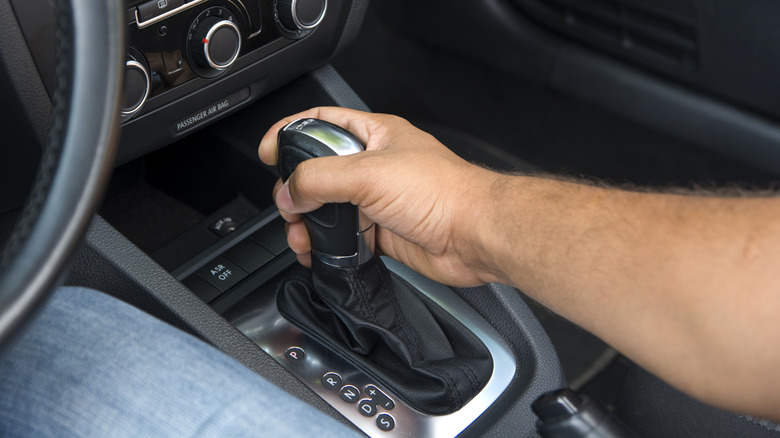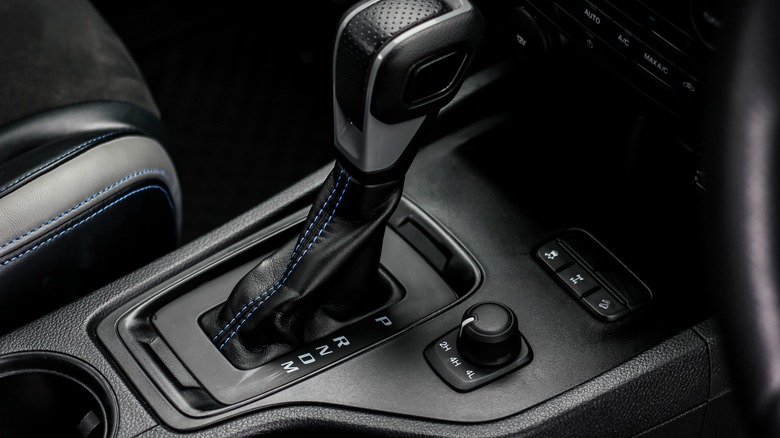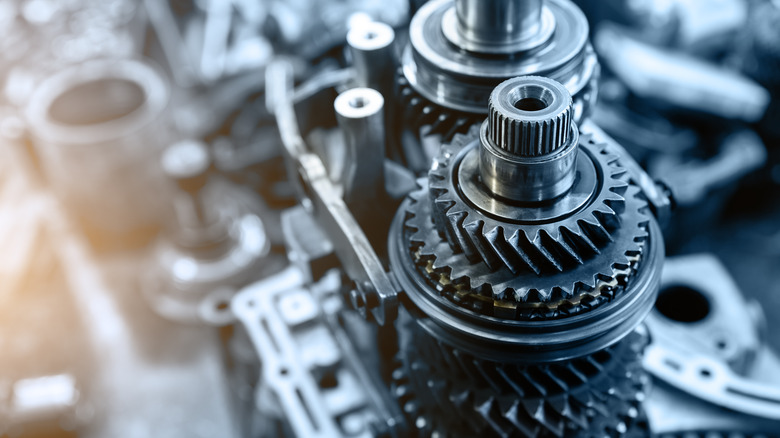What Happens If You Shift To Park While Driving?
Accidents happen, people do silly things, and it may be easier than you think to knock a vehicle into "park" while it is cruising along the road at high speed. If you haven't accidentally (or purposely) done it yourself at some point, you may have at least wondered what the consequences would be if you shifted from drive to park without waiting for the vehicle to stop first.
One of the consequences that springs to mind is the complete destruction of the car's transmission system. A transmission rebuild or replacement is one of the most expensive, complex, and labor-intensive jobs a mechanic can perform on a vehicle. It's often cheaper to just scrap a car and buy a different vehicle than it is to replace a ruined transmission.
But will shifting into park while the car is moving actually destroy a vital part of its powertrain, or are the results a little more mundane than that? We'll do our best to explain what is happening under the hood and what the consequences of that might be.
What happens when you put a car in park?
Before we look at what happens at speed, here's how a park function works when it's used properly, and the car is stationary before it is engaged. A car's park function isn't the same as a handbrake or "emergency brake." Instead of applying friction to the wheels to keep the vehicle still, the park function will instead lock the transmission so the car can no longer roll.
It does this via a mechanism in the transmission itself. Notches are carved into the transmission's output (the part between the transmission and drive shaft), and these are what the mechanism engages when it's activated. The park function is designed so it can be engaged even if the lever isn't perfectly lined up with gear, and it can also be disengaged while the car is parked on a hill. The latter is achieved with a taper on the mechanism, allowing it to disengage even if the weight of the vehicle is resting on it.
The park mechanism is a simple yet brilliant design. However, it does have its drawbacks. If extreme force is applied to the mechanism, it will likely be damaged. This is the main reason a tow truck driver will try to ensure the car being towed is in neutral before hauling it off. If a car is left in park, not only will it be harder to tow, but a lot of damage will likely be done to the vehicle.
Someone actually tried it
Armed with what we know about automatic transmissions and their parking functions, we can make a few guesses about what might happen if you put the car in park while moving at speed. Logically, a few things could happen. The transmission and/or mechanism may be destroyed, or a safety feature will prevent it from engaging. If the vehicle is rear-wheel drive, forcing the powertrain to stop immediately may also lock the back wheels, which may cause the vehicle to spin out. Though looking at the forces involved, something is more likely to just break.
The YouTuber who runs the channel AutoVlog tested it out, and nothing much happened. The vlogger in question got his car up to around 60 mph on a quiet stretch of road before forcing it into park. The car continued to move, and he was able to put it back into drive afterward. The YouTuber did notice a "scratching" sound coming from the transmission when the car was in park, but no actual damage seemed to be done, leading him to believe the car was somehow "dummy proof."
Here's what probably happened
The light on the driver's dash said "park," but the light is separate from the mechanism itself, and the car may not have actually made it into park at all. What is more likely is the locking tabs were unable to engage with the drive shaft at the speed it was going. The scratching sound was likely them trying to do their job and engage. There could be a mechanism in place that makes them back off. The fact that the driver also managed to put it into reverse at one point suggested some kind of failsafe in the transmission's design prevents it from destroying itself if someone does something silly. However, it was likely just the sound of the driveshaft knocking the mechanism back every time it attempted to engage.
At best, there is some minor, barely noticeable, damage to the mechanism and/or transmission that won't really affect the car long-term. At worst, the tabs and the notches in the transmission were badly damaged, and the park setting will no longer function properly. If the damage sheared the tabs, there's going to be small metal objects flying around where they shouldn't be in the vehicle's powertrain. So, while you may not notice anything if you put a vehicle in park while driving, you should avoid doing so at all costs.


